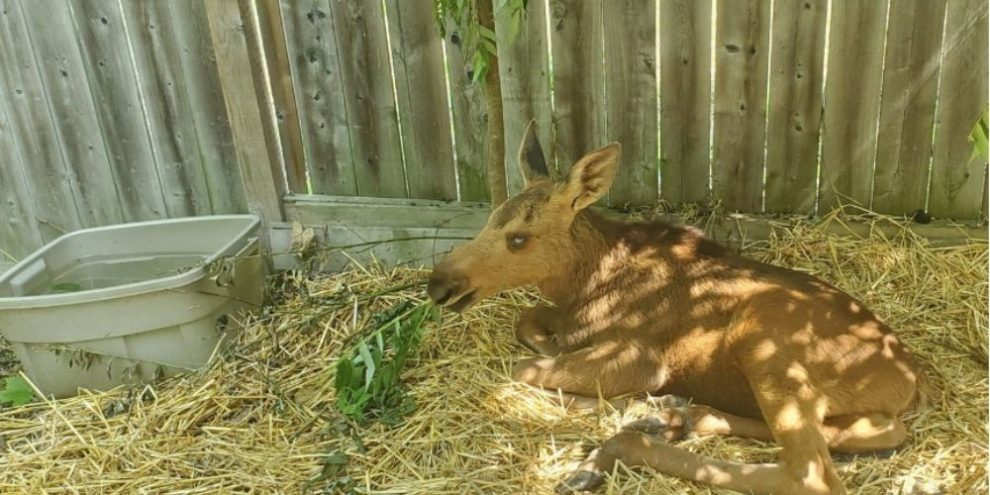
The Toronto Zoo will soon become home to a blind baby moose who was rescued near Ottawa earlier this month.
The two-month-old baby moose, now named Cedar, was found by an animal rescue group on a rural road in Hawkesbury, Ont.
Cedar was brought to Holly's Haven Wildlife Rescue, where he spent the last three weeks getting professional veterinary aid and care.
"The moose calf was blind and wandering on its own with no sight of a mother," said Lynne Rowe, the rescue organization's director of operations.
Rowe said staff immediately set up a room to assess Cedar's health, and found he has partial sight in one eye. By the next day, a small outdoor enclosure was created for him to move into.
While Rowe said they would usually turn to Aspen Valley Wildlife Sanctuary in Rosseau, Ont., to secure permanent shelter for rescued animals, they were told the sanctuary was at capacity with moose.
So Rowe shifted gears and reached out to the Toronto Zoo, which they said felt like a "fantastic alternative."
In order to get Cedar to the zoo, Rowe had to obtain approval from the provincial Ministry of Natural Resources. It came in within a day of applying.
"Moose cannot be taken out of the wild to be put in a zoo," Rowe explained. The only way a native Canadian animal like a moose can end up in an enclosure is if it is deemed unfit to be released back into the wild.
Dolf DeJong, CEO of the Toronto Zoo, said the zoo has a suitable moose enclosure and would be happy to welcome Cedar.
A full zoonotic disease scan and other risk assessment steps will be taken before the move.
"Anytime you're moving ungulates around the province, that's really important," DeJong said.
"Our veterinarians will connect with their veterinarians now so we can get a full understanding of Cedar's condition and make sure we're able to provide that support he needs for him to thrive."
DeJong said the best-case scenario would have been for the animal to be healthy and released back into the wild.
But there are upsides to this alternative solution.
"Many Canadians don't have the chance to see a moose, have never realized that they are massive, incredible animals with really fun diets and some really unique adaptations," he said.
"And if he needs a forever home, we're excited to be able to share that story and to provide that care for him."
At this time, DeJong said there is no set date for when Cedar will be moved to the zoo or when visitors can see him. The priority is making sure Cedar is in good health, he said.
"This is a visually impaired moose who will have his list of challenges. So our team will be doing their homework to make sure he's got the highest probability of success possible," he said.
"He's certainly been through a lot," DeJong said. "It's an honour and a duty we don't take lightly."
Cedar will continue living at Holly's Haven until he is cleared by vets to be in good shape to travel and all required paperwork at the zoo's end is complete, Rowe said.
"I'm very eager to see him settled into his new place," Rowe said. "I will definitely visit him at some point in the future."
This report by The Canadian Press was first published July 25, 2025.





